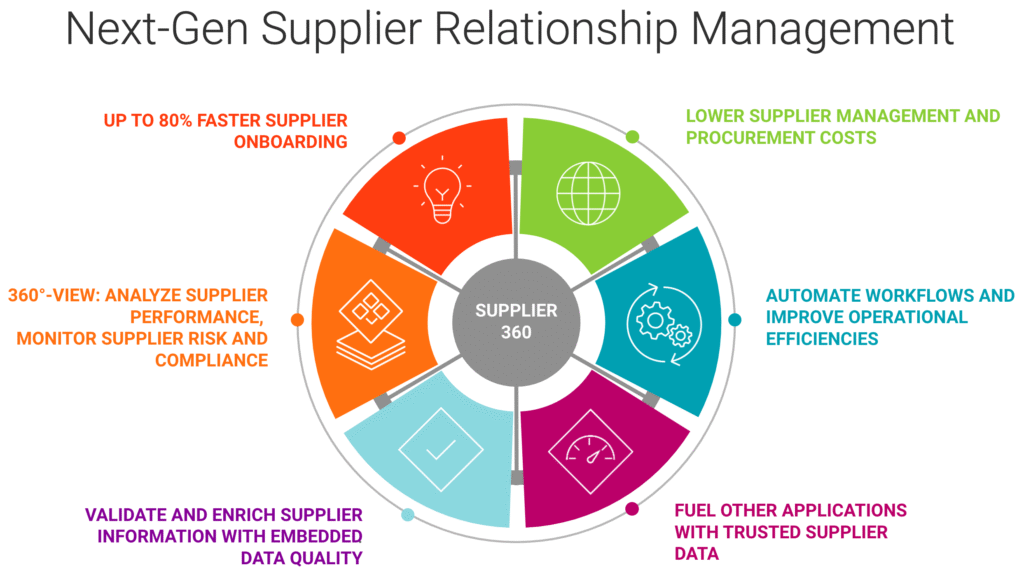The success of any retail business hinges on its ability to offer a compelling selection of products that meet customer needs and desires. But have you ever stopped to wonder where do retailers get their products? Behind the scenes, a complex network of relationships exists between retailers and their suppliers, ensuring a constant flow of goods onto store shelves. This article delves into the intricate world of retailer-supplier relationships, exploring the various strategies employed by retailers to source products and the crucial role these partnerships play in driving retail success.
This comprehensive guide will navigate the key aspects of product sourcing, examining different supplier types, the benefits of strong supplier relationships, and practical tips for building mutually beneficial partnerships.
Retailer Supplier Relationships
At its core, a retailer-supplier relationship is a symbiotic exchange where both parties benefit. Retailers rely on suppliers to provide them with the products they need to sell, while suppliers depend on retailers to distribute their goods and reach a wider customer base. These relationships are built on trust, communication, and a shared commitment to delivering value.
Effective retailer-supplier relationships go beyond simple transactions. They involve ongoing collaboration, information sharing, and a willingness to adapt to changing market conditions. Retailers often work closely with suppliers to develop new products, negotiate pricing terms, and ensure timely delivery of goods.
Strong supplier relationships can provide retailers with a competitive edge by offering access to exclusive products, preferential pricing, and valuable insights into market trends. Conversely, suppliers benefit from the reach and marketing power of established retailers, enabling them to expand their customer base and increase sales.
Product Sourcing Strategies
Retailers employ diverse strategies to source products, depending on factors such as product type, target market, and budget constraints. Some common sourcing strategies include:
- Direct Sourcing: Retailers purchase products directly from manufacturers, eliminating the middleman and potentially securing lower prices. This strategy is often preferred for high-value or specialized items where close collaboration with the manufacturer is essential.
Wholesale Purchasing: Retailers buy goods in bulk from wholesalers who act as intermediaries between manufacturers and retailers. Wholesalers offer a wider selection of products and streamline the purchasing process, but typically charge higher prices than direct sourcing.
Dropshipping: In this model, retailers partner with suppliers who handle storage, packaging, and shipping directly to customers. Retailers focus on marketing and customer service, while the supplier fulfills orders. Dropshipping offers low overhead costs but can limit control over product quality and delivery times.
- Private Labeling: Retailers develop their own brand of products by partnering with manufacturers who produce goods under their specifications. This allows retailers to differentiate themselves in the market and build brand loyalty.
Manufacturers, Wholesalers, and Distributors
Understanding the roles of different supplier types is crucial for retailers seeking to establish effective sourcing strategies:
Manufacturers: These businesses create finished goods from raw materials or components. They often have specialized expertise and production capabilities, allowing them to offer unique products.
Wholesalers: Acting as intermediaries between manufacturers and retailers, wholesalers purchase goods in bulk from manufacturers and resell them to retailers at a markup. They typically offer a wider range of products than individual manufacturers and provide logistical support such as warehousing and transportation.
- Distributors: Similar to wholesalers, distributors connect manufacturers with retailers but often specialize in specific product categories or geographic regions. They may also offer value-added services like marketing support, technical expertise, and inventory management.
Building Strong Supplier Partnerships
Cultivating strong relationships with suppliers is essential for long-term retail success. Here are some key strategies for building mutually beneficial partnerships:
- Open Communication: Establish clear lines of communication with suppliers, ensuring timely information sharing regarding orders, delivery schedules, and any potential issues. Regular meetings or conference calls can foster a sense of collaboration and transparency.
Mutual Respect: Treat suppliers as valued partners rather than simply vendors. Acknowledge their expertise, value their contributions, and strive for win-win solutions in negotiations.
Performance Evaluation: Regularly assess supplier performance based on factors such as product quality, delivery reliability, responsiveness, and communication effectiveness. Provide constructive feedback and work collaboratively to address any areas for improvement.
- Long-Term Vision: Develop a long-term perspective with suppliers, focusing on building enduring relationships rather than short-term gains. This fosters trust and encourages suppliers to invest in meeting your specific needs.
Benefits of Effective Supplier Relationships
Investing in strong supplier relationships yields numerous benefits for retailers:
- Access to Quality Products: Reliable suppliers ensure a consistent supply of high-quality products that meet customer expectations, enhancing brand reputation and customer satisfaction.
- Competitive Pricing: Strong relationships often lead to preferential pricing terms and discounts, allowing retailers to improve profitability.
Innovation and Product Development: Collaborating with suppliers can foster innovation by tapping into their expertise and exploring new product ideas.
Improved Supply Chain Efficiency: Streamlined communication and coordination with suppliers optimize the supply chain, reducing delays, minimizing inventory costs, and ensuring timely delivery of goods.
Conclusion
The success of any retail business is inextricably linked to its ability to source high-quality products from reliable suppliers. By understanding the various supplier types, implementing effective sourcing strategies, and cultivating strong partnerships, retailers can secure a steady flow of goods, enhance profitability, and ultimately drive customer satisfaction. Investing in robust supplier relationships is not merely a logistical necessity but a strategic imperative for achieving long-term retail success.



